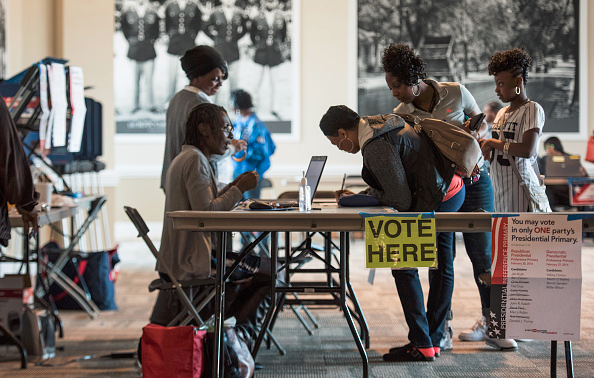Photo of the Month: February 2016

The end of February (extended one day for leap year) marks the close of Black History Month, as well as the beginning of the presidential primary elections. While voter turnout was at an all time high in some states according to CBS, others found themselves unable to vote due to new voter ID restrictions, says the Washington Post:
This is the first presidential election in the more than 50 years of the Voting Rights Act that the department’s ability to enforce the act has been so severely cut back,” said Vanita Gupta, who heads the Justice Department’s civil rights division. “Until Congress acts to restore the full protection of the act, we are fully committed to doing all that we can to make sure every eligible citizen has equitable access to a meaningful vote.
It's easy to draw the connection this month between past attempts to limit citizens' ability to vote and today. ID laws are intended to stop in-person voter fraud, which proponents claim plague the election system despite evidence showing it's too rare to swing elections. What the evidence does show, however, is that these ID restrictions disproportionately affect minorities and low-income people, according to the Government Accountability Office. Slate Magazine offers a more detailed look into why these groups are less likely to have acceptable forms of ID.
Click here for more monthly photos on people and issues we care about.
Comments are closed here.